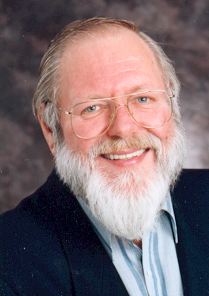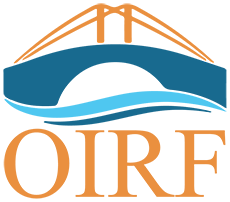A Tour Through The O.I.R.F. Library
We have had many requests lately for information on Bio-photons. This introductory non-technical article will try to demystify bio-photons, and provide enough information to serve as a starting point for further research and discussions. We can start with a basic dictionary definition. The McGraw Hill Dictionary of Scientific and Technical Terms defines Photons as “a massless particle, the quantum of the electromagnetic field, carrying energy, momentum and angular momentum”. The New Physics goes further and adds “the least unit of light of a given frequency is called a photon”.
We can add to our knowledge some excerpts from a speech given by Viktor Weisskopf on November 10, 1979 at the Pontifical Academy of Science (Vatican City) during a special session devoted to Albert Einstein. His comments should help elucidate the topic and provide some background. In that speech Weisskopf made the following points. (Scientific Encyclopedia p. 2365).
“….Einstein’s idea started a truly revolutionary development in physics: quantum mechanics. It opened up wide new horizons and clarified many outstanding problems in our view of the structure of matter. Quantum mechanics is based on the idea of wave particle duality. Einstein first applied this idea to the nature of light, but it was soon applied to the nature of elementary entities such as electrons and other constituents of matter.”
“The idea was that all these entities exhibit both wave and particle properties. This double nature taxes our imagination: few things differ as much as a beam of particles and a running wave. In a beam of particles, matter is concentrated in small units, whereas a wave spreads continuously over time. Still wave and particle properties are observed for electrons and other fundamental entities.”
The article goes on to discuss the patterns that electrons and atoms form and how this relates to the stability of substances. It then goes on to state “The electron patterns are the primal shapes of nature. Fundamentally, all of nature’s shapes can be traced to such patterns. Even the properties of the molecules are based on them – in particular, the properties of the molecules that carry the hereditary code. In the final analysis, the stability of electron wave patterns causes the same flowers to bloom every spring and makes children similar to their parents.”
“Einstein started this great development as early as 1905 by an almost unimaginable act of vision, when he concluded that the concept of … electromagnetic wave does not suffice to explain important properties of light. He drew the revolutionary conclusion that there must exist light-particles, the photons. The particle wave duality was born” Page 2365.
The preceding serves only as an introduction to Photons. While a basic understanding of Photons are necessary, as a practitioner of Biological Medicine what you really want to know are the implications for living organisms. For this we draw upon current research findings and articles to expand our knowledge.
In an article by Fritz-Albert Popp entitled “Photon Storage in Biological Systems” he says that with very few exceptions, ultraweak photon emissions have been identified in all plant and animal cells investigated, and that radiation intensity is in the order of a few hundred to a thousand photons per cm2 per second. Further that the Photon emission spreads at least over the region from infrared to ultraviolet (at about 350 nm).
Experimental results by Popp suggest that the mitochondria produce radiation (emit photons), and that the fluorescence of tryptophane at 350 nm may play a role. In contrast to “bioluminescence”, ultraweak photon emission becomes increasingly important as we move from the simplest organism toward the higher ones. Other points he makes are that radiation may be utilized for communication within the living system and possibly transfer genetic information, that cells mainly emit photons before mitosis; that cancer cells are intense radiation sources; and that proliferating cell cultures radiate more intensely than those in which growth has ceased.
Perhaps the most interesting point in the above paragraph is that Popp suggests radiation may be utilized for communication and possibly transfer genetic information. This differs fairly dramatically from traditional North American theorists who propose that cells communicate via chemicals and receptor cells as discussed in, for instance, “The Language of the Cells, by Claude Kordon McGraw-Hill 1991.
Communicating with radiation is not inconsistent with the theory put forth by Nobel prize winners Prof. Dr. Erwin Neher and Prof. Dr. Bert Sackmann at the Max-Planck-Institute in Göttingen Germany that is, “almost all physiological reactions of the cell are regulated through ion flows and flow channels. Thus, the research results confirm the basic research of the bioresonance therapy: the regulation of the organism is achieved by means of energetic impulses”. Arztezeitschrift fur Naturheilverfahren 35, 3 (1994). One must be careful to distinguish between achieving regulation and communication.
The same article cites a study by Dr. Bernard Ruth (a collaborator of Popp) which shows that relatively intense of photon emissions come from dying cells, regardless of the cause of death, whether if be by refrigeration, centrifugation, heat or treatment with toxic agents. This phenomenon has been attributed to the irreversible destruction of well-ordered cellular states. A question remains – Are these photon emissions absorbed by the organism, for the good of the organism? Although not proven, it is thought that they are.
Popp felt that his findings could lead him to postulate that biological systems generally have the capacity to store coherent photons which come from the external world. Are the hints for photon storage now proven?
We hope that the above introductory article has provided some insight into photons, and their significance to cell communication and biological systems. While more research is required, what we do know is exciting, and useful to practitioners. As a basic summary the Institute puts forth the following:
- That living systems can store photons,
- That cells emit burst of photons as they die (for the good of the organism)
- That cells are hypothesized to communicate via photons.
The above perspective fits in nicely and is complementary to the “Info-Med” framework that the Institute has been proposing to Associates for a number of years. We also strongly feel that therapies which add or work with photons are potentially very powerful and will become increasingly more prominent in the years to come. We welcome your comments.
 An Exclusive Article for OIRF Members
An Exclusive Article for OIRF Members
From THE BRIDGE Newsletter of OIRF
Published September 1994
© Copyright 1994, Sturm/Occidental Institute, BC Canada



